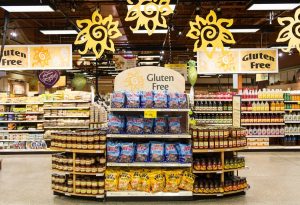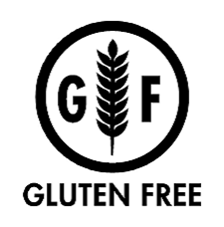Why You Need to Sell Gluten Free Online
Why You Need to Sell Gluten Free Online
People seem to have mixed opinions about gluten free foods. Some people think it has become a fad to be entirely gluten free, and in a way it has. The term “gluten” demonized just as “calorie” is. Surprisingly, if you ask a friend if they know what gluten is, chances are they do not have a clue. They will probably say that it’s bad for you.
In reality, gluten is not as terrible as it seems. It’s not going to make you fat or go straight to your thighs. It is a by-product of wheat, so wherever there is wheat there is also gluten. Being gluten free can be tricky because it affects anything made with wheat flour. This includes virtually all baked goods and pastas, which can be upsetting considering they make up most comfort foods.
Access to gluten free foods is very important for people with an intolerance for gluten. This is why buying gluten free online is a godsend for people who’s local grocers do not carry the products they need.
Fortunately, most people can tolerate gluten so they do not need to worry about what they eat. Unless your body cannot process gluten, you would have few proven benefits to being on a gluten-free diet. The downside, though, is that people with gluten intolerance have to be very careful about avoiding wheat, and they may not have easy access to gluten free foods.

Why Access is Important
Not everyone lives in big cities like Los Angeles or New York City where huge and progressive supermarkets are. If you are in a rural area, you may not have seen a Whole Foods or Trader Joe’s in your life.
Urban areas are packed with potential markets and restaurants for any dietary restriction you can think of. A person living in such a place can specify any diet they please and may not have to endure such an inconvenience.
On the other hand, rural residents may have to drive far to get to a supermarket. If they have allergens they may already be limited to their choices. In this case, gluten-intolerant customers may take their business online. As long as they do not mind paying a little extra for shipping and waiting a bit longer for delivery, they can expand their options to infinity. Online grocery shopping opens up opportunities for people in low-access areas and food deserts.

Expanding Options for Your Customers
Having a variety of foods for people with dietary restrictions is important for gaining and keeping customers. Gluten free foods are an especially good option because even people who do not need them want them. Even though there are no true benefits to being gluten free if you have no intolerance, there are people who want to give it a try anyway. As silly as it sounds, it’s actually a good thing for people who really need gluten free options, because it’s becoming more mainstream.

Living with Celiac Disease
Celiac disease is an autoimmune disease that affects the small intestine. When an affected person attempts to digest gluten, an immune response triggers an attack on the small intestine. The only sure way to prevent it is to live with a gluten free diet (which means no wheat, barley, or rye).
This disease reportedly affects 1% of the population, which doesn’t sound like much but in America that accounts for 2.5 million people. For all of these people, it is necessary to cut gluten from their diets.
Gluten appears in many foods, so it can be difficult for people with celiac disease to live a normal life. This may mean that they have to plan ahead when travelling or that they need to bring their own meals to events that may not have gluten free options. They may even need to be careful about what they drink (beer is made from wheat or barley).
Offering gluten free products is very helpful for people with celiac disease. If you provide a variety of gluten free foods, you will surely capture the interest of gluten-intolerant consumers.

Possibilities of Gluten Free
Most likely everyone has seen gluten free bread at their local grocer. Some common gluten free items you can find include bread, pasta, and flour. Now, there are many more things to add to the list: cookies, pies, cakes, crackers, muffins, pizza, and yes, even beer. With all of the substitutes for normal flour, there is hardly a reason to not have gluten free products.
A person with a gluten intolerance could have a completely normal diet if only these substitutes were more common. Flour is made from many things. There’s coconut flour, rice flour, oat flour, corn flour, etc. Any of them can replace wheat flour in a recipe.

If you provide these options to your customer base, you are promoting the change to allow people freedom from their dietary restrictions. Everyone should have access to food that is safe for them to eat, and no one should have to feel left out or otherwise limited by what stores have to offer them.
If given the chance, your customers will appreciate your effort to please their needs. Transitioning your inventory to one that is more inclusive will be helpful for everyone.
Start selling gluten free products today.




